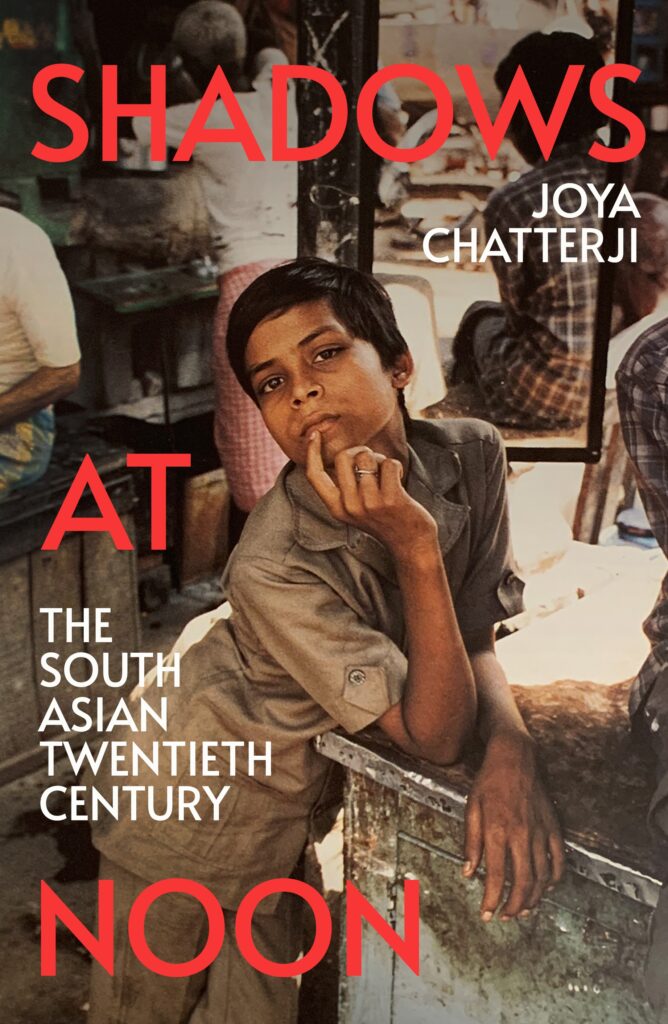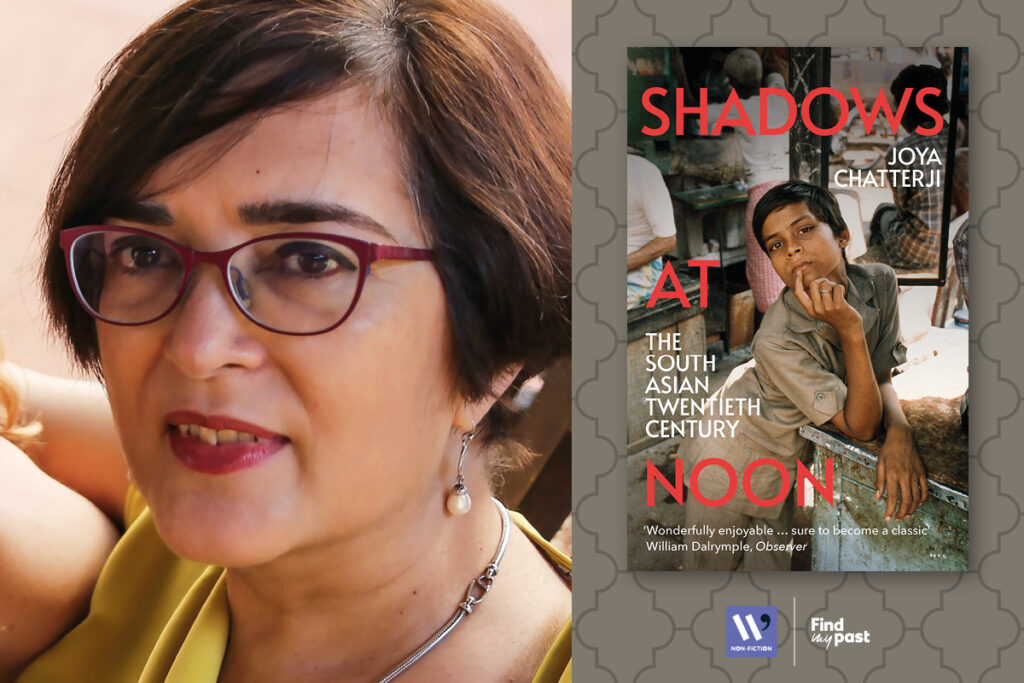Shadows at Noon by Joya Chatterji is the authoritative history of South Asia in the 20th century, telling the subcontinent’s story from the British Raj through independence and partition to the forging of the modern nations of India, Pakistan and Bangladesh.
Longlisted for the 2024 Women’s Prize for Non-Fiction chair of judges Professor Suzannah Lipscomb had this to say about the book: ‘This is the product of a lifetime’s research. A superb and evocative work of history, it is compelling, original, big and bold.’
To find out more about the book we spoke to Joya about her writing, research and current reads.

Describe your book in one sentence as if you were telling a friend.
It’s a book about how, after independence and two partitions, India and Pakistan developed in ways more similar than different.
Did you have any revelation moments when writing your book? When the narrative and your objectives all fell into place?
I had many such moments. Aha moments. I felt as if I were a student rather than an author while creating that book.
What is the one thing you’d like a reader to take away from reading your book?
For god’s sake question everything. Above all, received history.
Which other female non-fiction writers inspire you and why? Any particular title?
Romila Thapar was the first inspiration, and though our subjects differ widely, in her approach to life and scholarship she was a role model. Tanika Sarkar is the other I will name, she is is groundbreaking historian of great courage. There are others too but I don’t expect you want a long list!
What is the best piece of writing advice you have ever received?
Avoid using the passive voice.
What book is currently on your nightstand?
George Saunders, Lincoln in the Bardo. I am re-reading this book, as a habitual, indeed criminal, re-reader of books.








